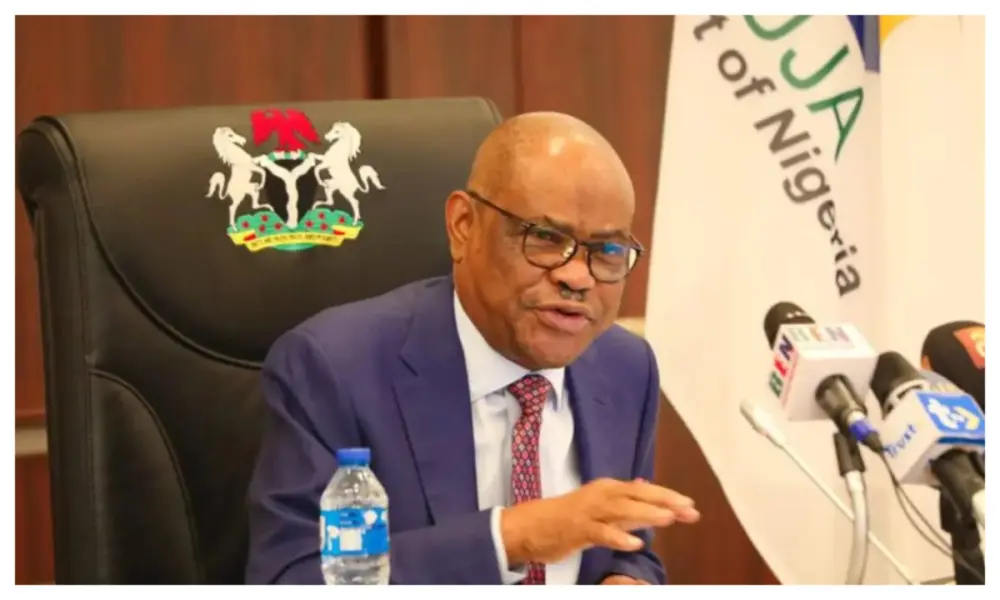Nigeria’s first 100 per cent owned container shipping line, the Clarion MV Ocean Dragon, berthed in Lagos yesterday, at Tin Can Island Port to transport cargoes across the nation’s sea ports and service other West African trade corridors, as well as to deepen trade under the African Continental Free Trade Area (AfCFTA).
The Panama-flagged vessel, acquired by Clarion Shipping West Africa Limited, built in 2014, with a capacity of 349 twenty-foot equivalent units (TEUs), is expected to enhance short-sea shipping and ply trade routes across Nigeria and the West African sub-region, while providing alternative to road transport for cargo movement and strengthen trade in Africa.
The vessel is scheduled to operate across West Africa and beyond, servicing ports in Nigeria, Benin Republic, Togo, Ghana, Cameroon, Sierra Leone, Ivory Coast, Egypt, South Africa and others, with orders also booked.
Speaking during the unveiling of the vessel, the Vice President, Clarion Shipping West Africa Limited, Bernadine Eloka, described the acquisition as a bold solution to the high-risk, road-dominated movement of cargo within Nigeria and a strategic move to deepen regional trade under the AfCFTA.
She said with Ocean Dragon now in operation, Clarion Group aims to offer more efficient intra-African shipping services while opening up new business opportunities across ports in Nigeria, Ghana, Ivory Coast and beyond.
“We acquired MV Ocean Dragon to offer a seamless alternative to container haulage by road. Rather than struggling to move containers from Lekki to Onitsha, Port Harcourt, or Calabar by trucks, Ocean Dragon can move up to 349 containers by sea and deliver within two days from port to port,” Eloka explained.
Eloka emphasised that Ocean Dragon was acquired not just for business, but to take advantage of Nigeria’s Cabotage Law, which is designed to reserve domestic maritime operations for Nigerian-owned vessels.
According to her, enforcement of the Cabotage regime would encourage local investment, create jobs, and reduce Nigeria’s dependency on foreign-owned shipping lines.
“We are the first fully indigenous container liner in Nigeria, and we’ve complied with all requirements from NIMASA, NPA, Customs, and NIWA. Now we are calling on the government to fully implement Cabotage and restrict foreign shipping lines from moving containers between Nigerian ports,” she added.
The Managing Director, Clarion Suncity Terminal Logistics Limited, Mustafa Mohammed, said the company is taking aggressive steps to compete with global giants such as Maersk Line and MSC by leveraging its status as Nigeria’s first indigenous shipping liner, investing in assets that directly support Nigerian exporters and importers, particularly in the under-served North.
He said the company has already secured bookings for 1,300 export containers, and is helping farmers and manufacturers avoid losses caused by delays and a lack of containers.
Mohammed noted that beyond domestic logistics, Clarion is expanding its ocean fleet with a new high-capacity vessel with 1,780 TEUs set to arrive in Nigeria soon, joining the recently launched Ocean Dragon.
He added that the new vessel, classified as a mother feeder vessel, will serve the West African corridor—linking ports in Liberia, Togo (Lomé), Ghana, Côte d’Ivoire (Abidjan), and Nigeria.
He said the services are critical to actualising the AfCFTA goals, as one of the biggest setbacks for intra-African trade is a lack of reliable African-owned vessels.
“With Clarion, we now have a vessel that goes from China to Lagos, and from Lagos, we can service all of West Africa efficiently,” he said.
Mohammed also emphasised Clarion’s commitment to indigenous development, noting that by investing in locally branded containers, employing Nigerians, and targeting underserved markets, the company is creating jobs and driving value across the supply chain.
The Managing Director, Clarion Group, Adaeze Vanessa Eloka, said the vessel sailed for 60 days from China to Nigeria, revealing that overseeing the vessel’s acquisition and delivery was a massive challenge, especially the language barriers, technical issues and even having to turn back to Malaysia at some point due to engine problems, which was fixed.
She noted that a key highlight of the Ocean Dragon project is its crew composition, disclosing that 70 per cent of the vessel’s crew are Nigerian seafarers, whom the company flew to China to join the ship for its maiden voyage.
“We wanted this vessel to be run by Nigerians. We believe Nigerian seafarers are capable, and this is a big step in giving them the platform they have long been denied,” she said.



